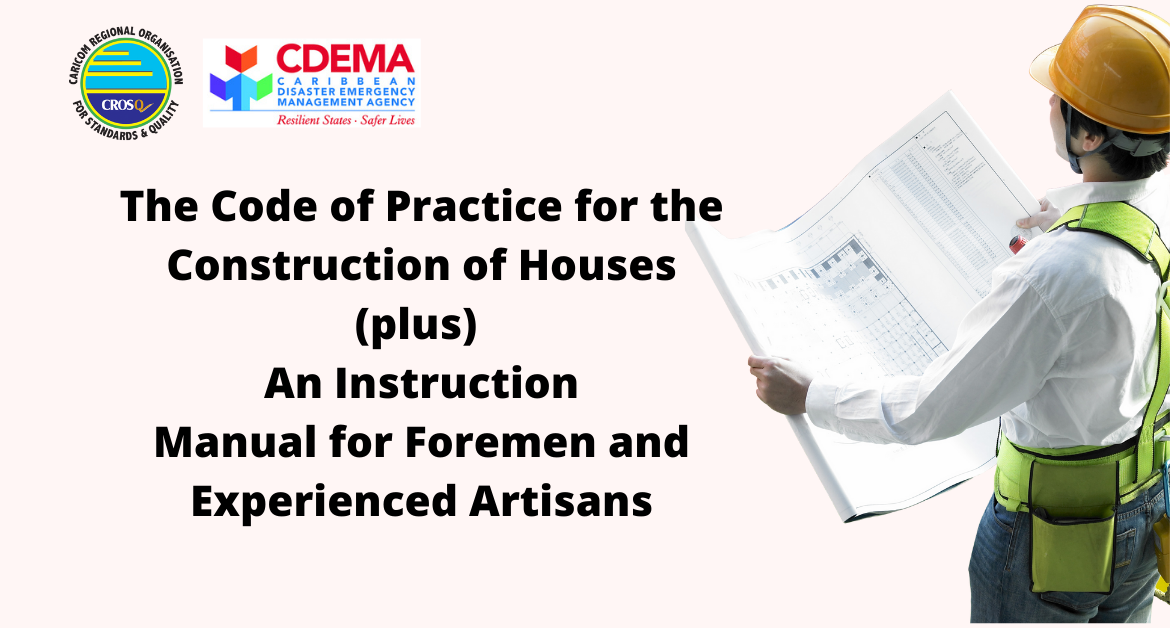Foremen and experienced artisans are the main target groups of a regional standard, which will create a code of practice for the construction of houses.
The undertaking by the CARICOM Regional Organisation for Standards and Quality (CROSQ), in conjunction with the Caribbean Disaster Emergency Management Agency (CDEMA), saw the launching of a regional team of experts in January, whose members are now tasked with developing, debating and deciding on the specifics of the code of practice.
Head of the Regional Project Team, Dr. Bertilia Bartley, a civil and materials engineer with Dominica’s Ministry of Public Works and the Digital Economy, said the project was of particular significant for her and fellow countrymen because of the natural disasters that have impacted that CARICOM Member State.
“We saw first-hand what the lack of regulations and strict building codes did to a lot of people who lost their homes, lost their livelihoods completely, and that is something that I appreciate this committee for bringing this forward and trying to standardize the building code for artisans and let’s say, the guys on the ground, because we are talking about informal construction right now and these are usually the people who get a lot of building projects…
“…[A]fter having reviewed the list of members on here, I see we have as part of this committee, institutions and departments that can really implement some kind of change and hopefully get this standard off the ground and implemented in the different islands,” she stated.
Regional Project Teams (RPTs) are comprised of experts across the CARICOM region who contribute to the development of standards because of their prime position and knowledge within the specific industry or sector. These professionals volunteer their time to developing standards, which is based on international best practices, while ensuring the guidelines and parameters are best fit for the region.
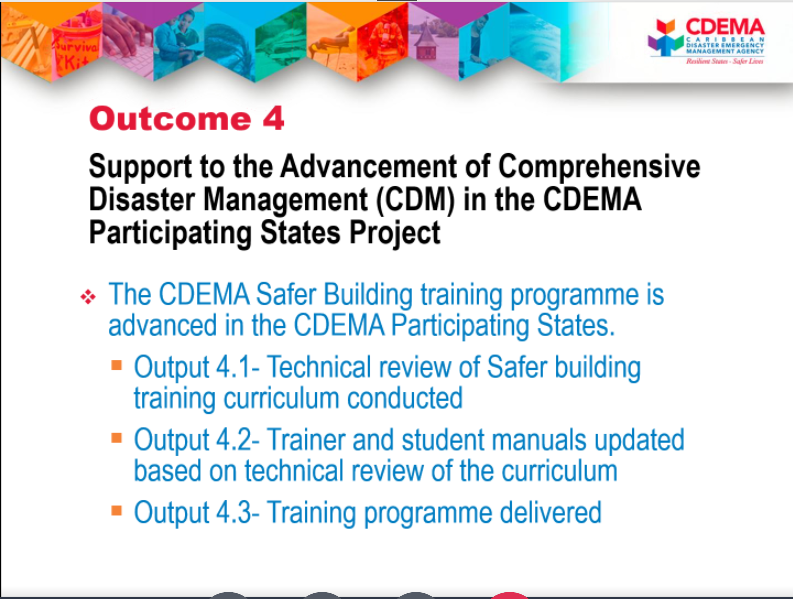
Presentation of details of the project. 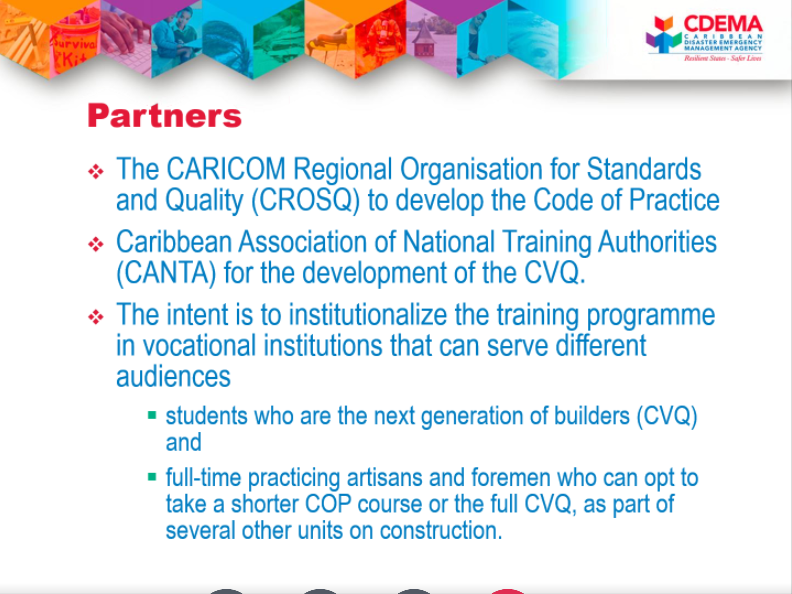
CDEMA presentation about the project. 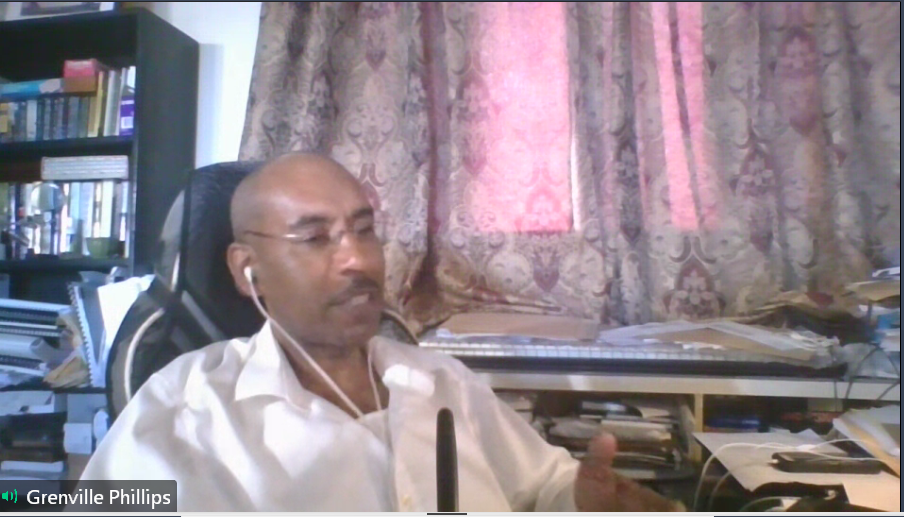
Mr Grenville Phillips is a consultant on the project. 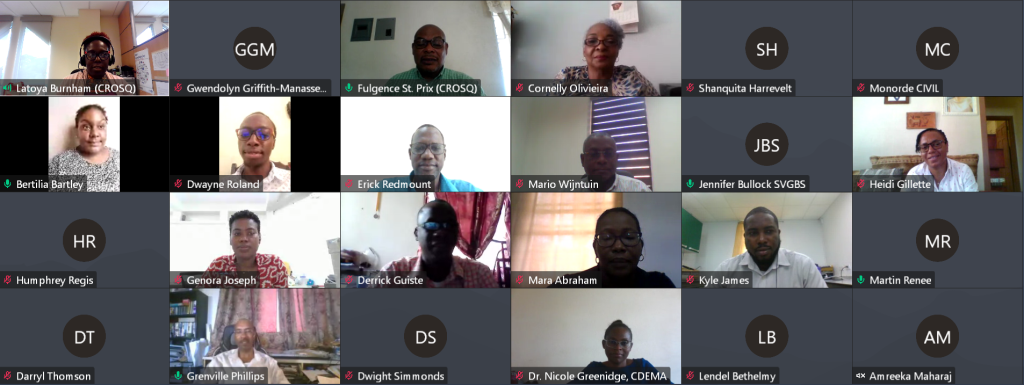
Members of the RPT and technical officers at the launch.
CROSQ’s Technical Officer, Standards Development and Technical Regulations, Mr. Fulgence St. Prix walked the members through the process they are expected to follow through the discussions and decisions on the standard. He explained the responsibilities of the members of the team, stressing the need for transparency and openness; as well as consensus building in the process, as well as the need to present national positions on decisions, rather than individual desires.
The Dominica Bureau of Standards and the St Vincent and the Grenadines Bureau of Standards are serving as regional secretariats for the administration of the process, on behalf of CROSQ. At the end of deliberations, the standard will be presented to the CARICOM Council for Trade and Economic Development, for regional acceptance.
This is the process, CDEMA’s Disaster Risk Management Specialist, Dr. Nicole Greenidge acknowledged that would enable the further development of certification for foremen and artisans. She explained that the initiative was part of the “Support to the Advancement of Comprehensive Disaster Management in the CDEMA Participating States Project”, which is funded by the Government of Norway.
“We have had significant damages within the housing sector as a result of having been impacted by natural disasters that have overwhelmed us significantly. Much of it has been found to be related to poor building practices, as well as the absence of sensitisation to safe building practices and also we have recognised that a substantial portion of the housing stock in the Caribbean has been built through the informal construction sector which does not necessarily adhere to formal building codes and standards. We also the issue that many practitioners within the informal sector have never received formal skills training or certification,” she explained.
During the creation of the Code of Practice for the Construction of Houses, there will also be the development of an Instruction Manual for Foremen and Experienced Artisans, based on the Code. The instructional manual will be a two-part document comprising a curriculum and trainers manual, and a student’s manual, which can be used at the vocational educational level.
“I want to make it clear that the work on the Code of Practice is part of a larger framework. This is not a building standard in the sense of looking at a national building standard. This is speaking particularly to the construction of houses; it is a training programme and it is a [narrower] focus. The target audience is also a point for noting, which is that the focus is on foremen, it is on artisans and we are also preparing off of this product, we will have a product for home owners.
“I want us to be mindful of where this work fits into the broader sphere… We still have to do more work in our region in this area to ensure that we can really move the needle in this area. Beyond developing the code, we also need to get out there with the marketing, so there is awareness. We also need our policymakers to make it mandatory or a requirement that you would utilise persons that have been trained in the area,” she said. The intent is to have a regional standard and training programme that provides training on safer buildings, with specific qualifications at the certificate vocational or CVQ level.

